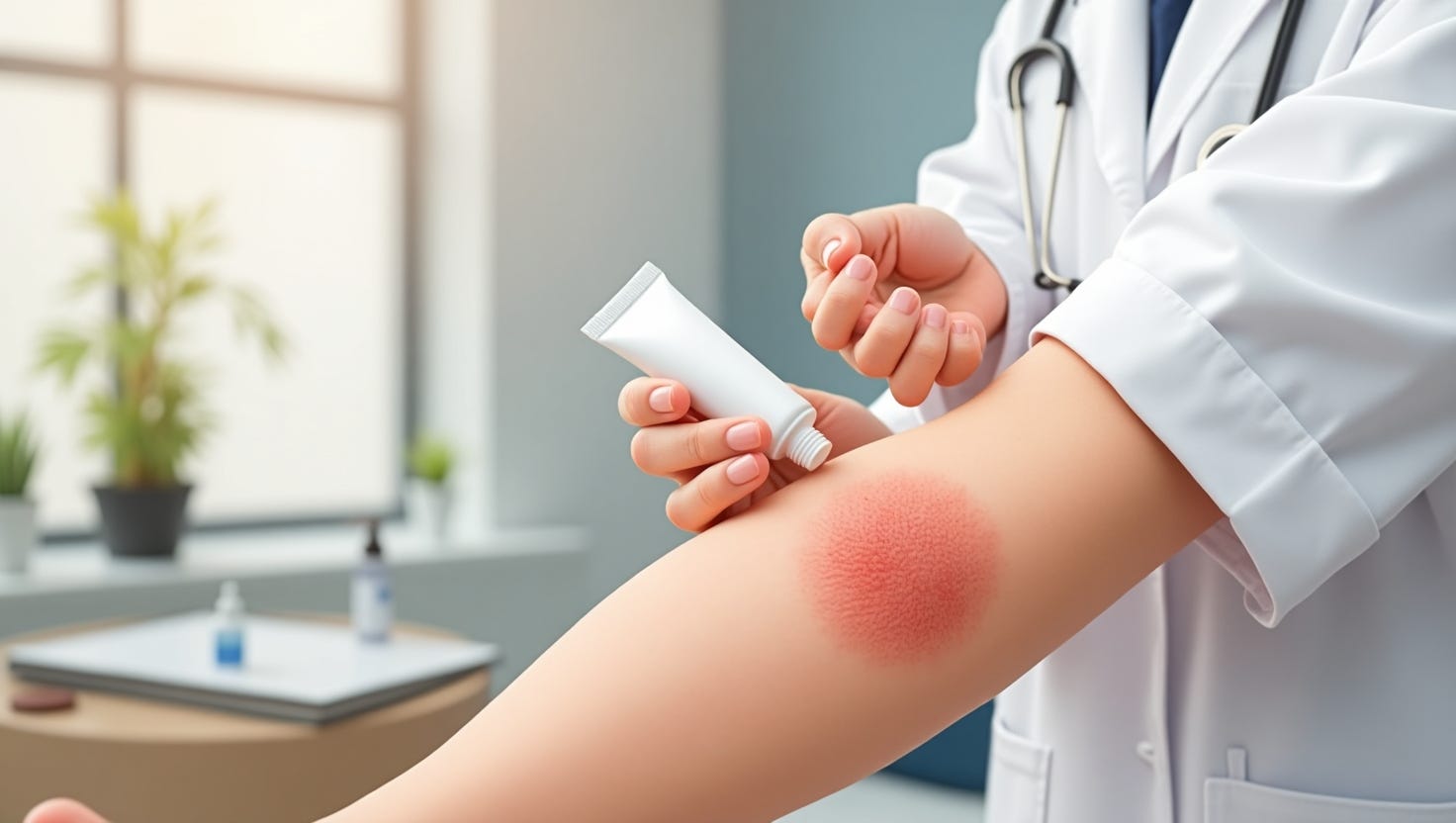Winter Skin Care Tips for Dry Skin

Table Of Contents
- What Causes Extremely Dry Skin?
- Recognising Symptoms of Winter Dry Skin
- Lifestyle Changes for Hydration
- Strategies for Winter Skin Hydration
- When To Seek Medical Attention
What Causes Extremely Dry Skin?
Extremely dry skin, or xerosis, arises from a combination of factors.
- Weather. Environmental conditions, such as cold, dry weather or low humidity, can dehydrate skin.
- Hot Showers. Frequent hot showers and harsh soaps strip away natural skin oils.
- Skin-related Issues. Underlying medical conditions like eczema, psoriasis, hypothyroidism, or diabetes can exacerbate dryness.
- Ageing. Ageing reduces the skin's natural moisture retention.
- Lack of Omega-3 Fatty Acids. Dehydration and insufficient intake of omega-3 fatty acids and water may also contribute.
- Medications. Lastly, certain medications, including diuretics and retinoids, can dry out the skin. Addressing these factors and adopting a consistent moisturising routine can help alleviate extreme dryness.
Recognising Symptoms Of Winter Dry Skin
Recognising the symptoms of winter dry skin is crucial for timely intervention and effective care. Here are the most common symptoms and signs of dry skin worsened by winter conditions:
- Itchiness: One of the most common complaints, itchiness can range from mild to severe.
- Flaking or peeling: Dry skin can shed its outer layer, leading to visible flaking or larger peeling areas.
- Redness: Affected areas may appear reddened, especially after scratching.
- Rough texture: The skin may feel coarse or bumpy instead of a smooth surface.
- Visible cracks: In severe cases, the skin may crack, sometimes deep enough to cause pain or bleeding.
- Increased sensitivity: Dry skin may be more sensitive to products, fabrics, or environmental factors.
- Feelings of burning or stinging: Particularly after applying some products or coming in from the cold.
Lifestyle Changes For Skin Hydration
Maintaining proper hydration is not only essential for physical health but also for optimal skin health. Here are some suggestions to maintain and improve hydration through dietary and protective measures:
- Drink Plenty of Water: Ensure adequate water daily to maintain skin hydration.
- Omega-3 Fatty Acids: Include fatty fish (e.g., salmon, mackerel), walnuts, chia seeds, and flaxseeds. They can help retain skin moisture and strengthen the skin's barrier.
- Antioxidant-rich Foods: Berries, nuts, dark chocolate, and green tea can protect and nourish the skin.
- Gentle Cleansers: Use mild, fragrance-free soaps and cleansers that don't strip the skin's natural oils.
- Moisturise Immediately After Bathing: Pat your skin dry with a towel and apply a moisturiser while the skin is still damp to lock in moisture.
- Soft Fabrics: Wear natural, breathable fabrics like cotton. Avoid wearing itchy materials like wool directly against your skin.
- Avoid Irritants: Reduce contact with harsh chemicals, fragrances, and dyes. Wear gloves to protect your hands if you're washing dishes, gardening, or exposed to chemicals.
Winter Skincare Tips for Dry Skin
To combat winter dryness, a multi-faceted approach is necessary:
- Use a Humidifier: Consider investing in a humidifier for your home, especially in rooms where you spend most of your time. This can help maintain optimal humidity levels and prevent the skin from drying out.
- Limit Bath Time and Temperature: Hot water can strip the skin of its natural oils. Limit shower or bath time and use lukewarm water instead of hot water.
- Apply Sunscreen: Even in winter, UV rays can damage the skin. Applying a broad-spectrum sunscreen can protect your skin, especially when it's snowy, as snow can reflect UV rays.
- Wear Appropriate Clothing: Protect your skin from cold winds, rain, and snow by wearing layered, wind-resistant, and insulating clothing. However, be sure that the innermost layer is soft and breathable to prevent skin irritation.
- Stay Hydrated: Drinking sufficient water is vital. Even though you might not feel as thirsty in winter, your body needs hydration to function efficiently, including maintaining skin health.
- Avoid Alcohol-based Products: Certain toners and astringents can further dry the skin. Check product labels and opt for alcohol-free versions.
When To Seek Medical Attention
If you've made several changes to your winter skincare routine and still experience severe dryness, redness, or irritation, it might be time to consult a dermatologist. They can provide specialised recommendations and sometimes prescribe treatments or creams that can offer relief.
Kaya understands the winter battle with dry skin and offers tailored solutions. Their expert dermatologists craft personalised regimens to combat dryness effectively. Kaya's skincare products, including hydrating creams and serums, are specially formulated to provide essential moisture in harsh winter conditions. Here's why Kaya is your go-to skincare solution:
- Expert Dermatologists
- Customised Regimens
- Specialised Winter Products
- Proven Track Record
- Ongoing Support
Experience Winter Skin Transformation with Kaya!










